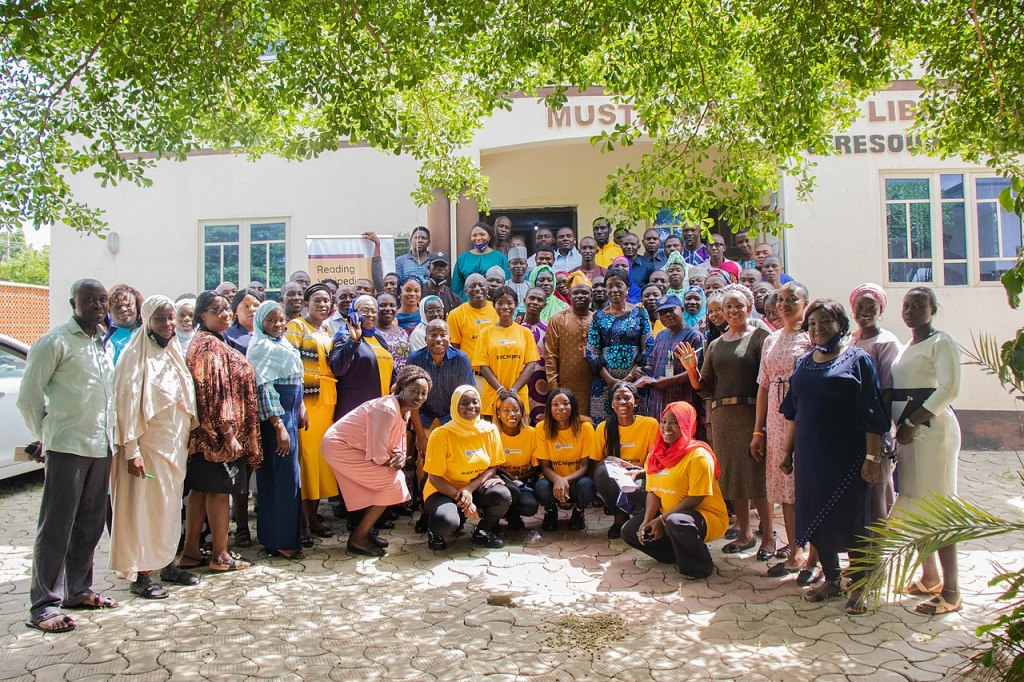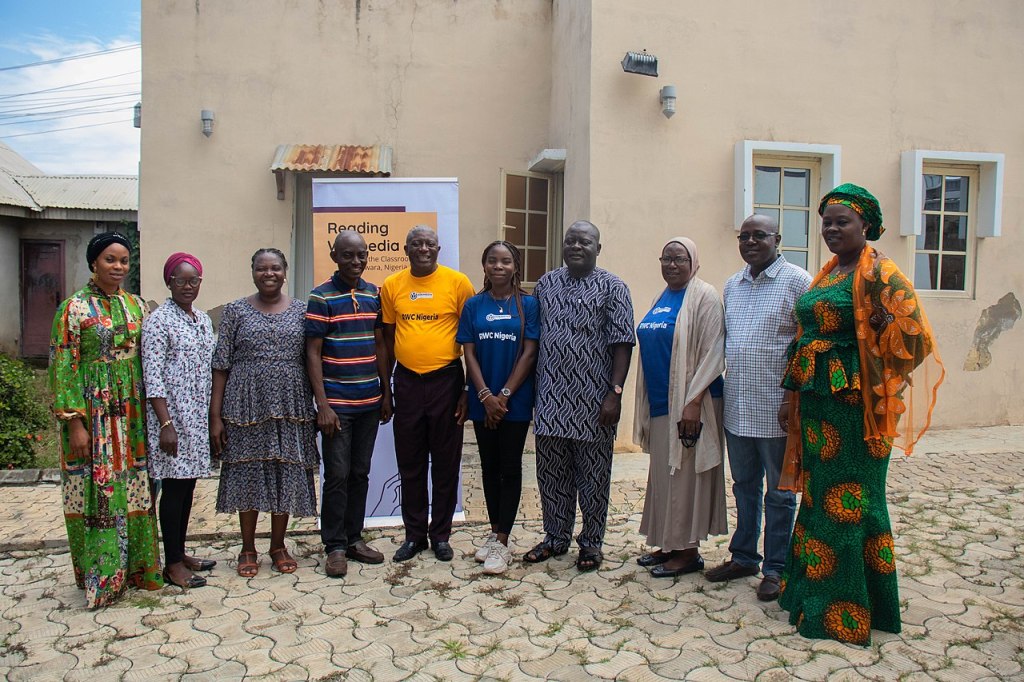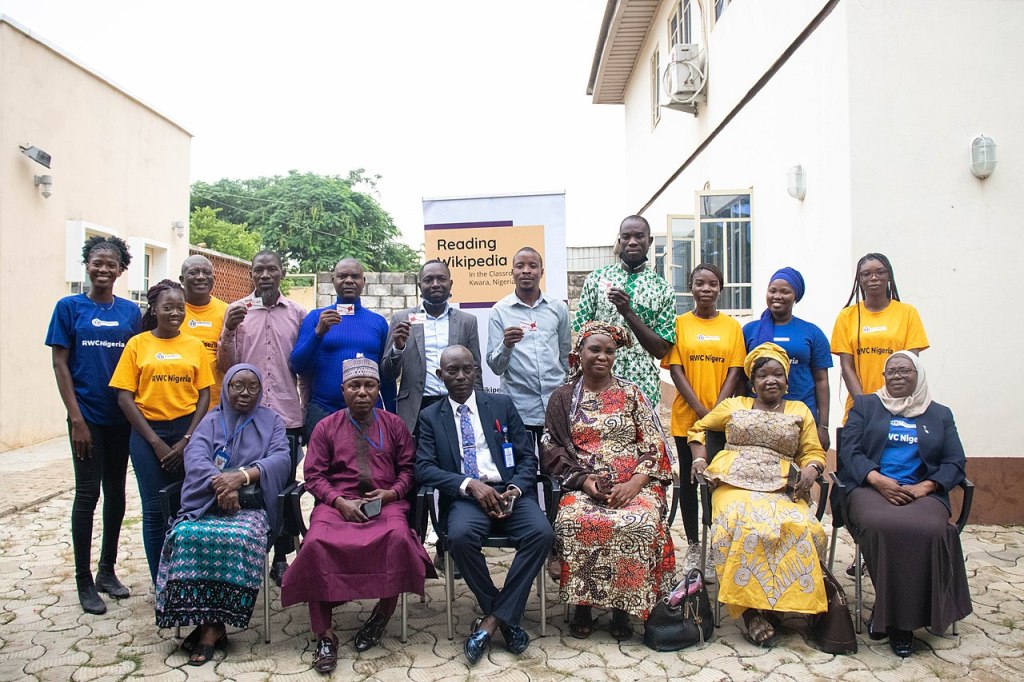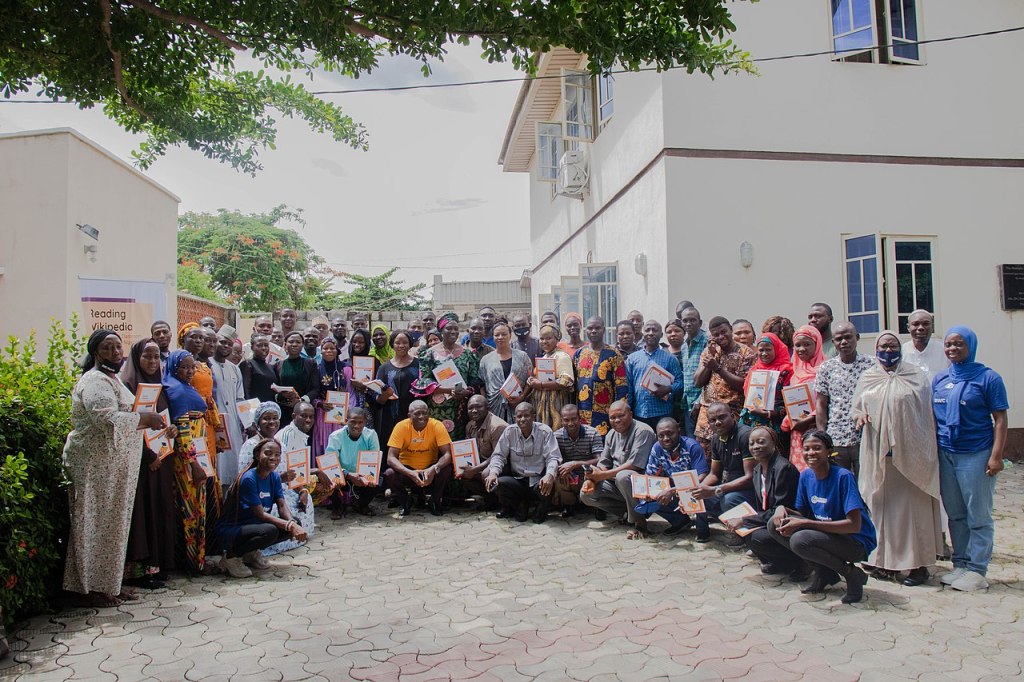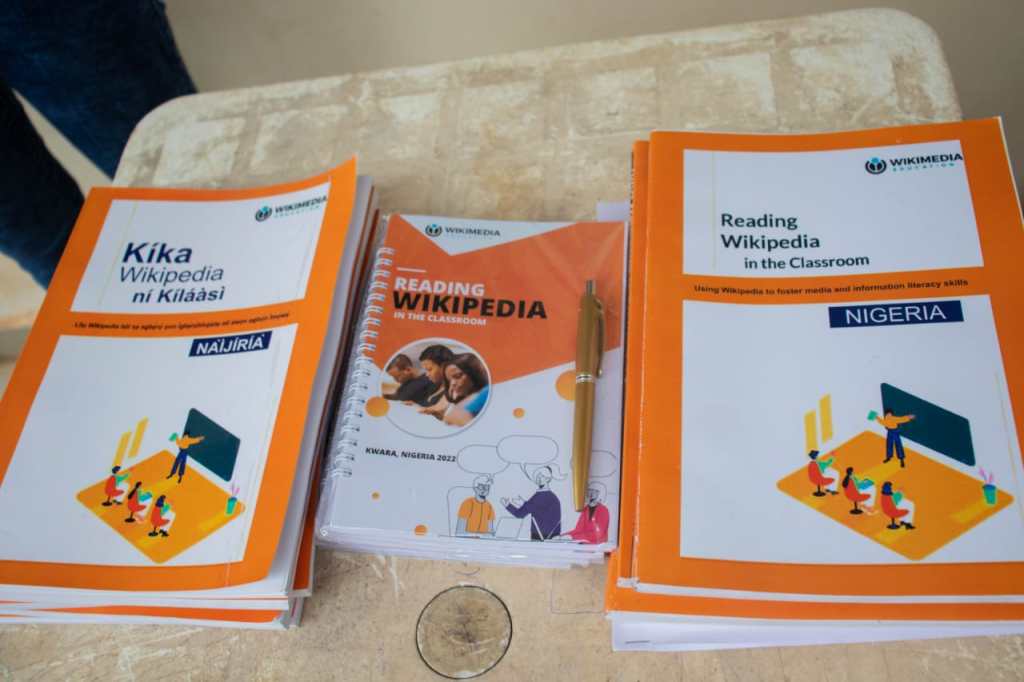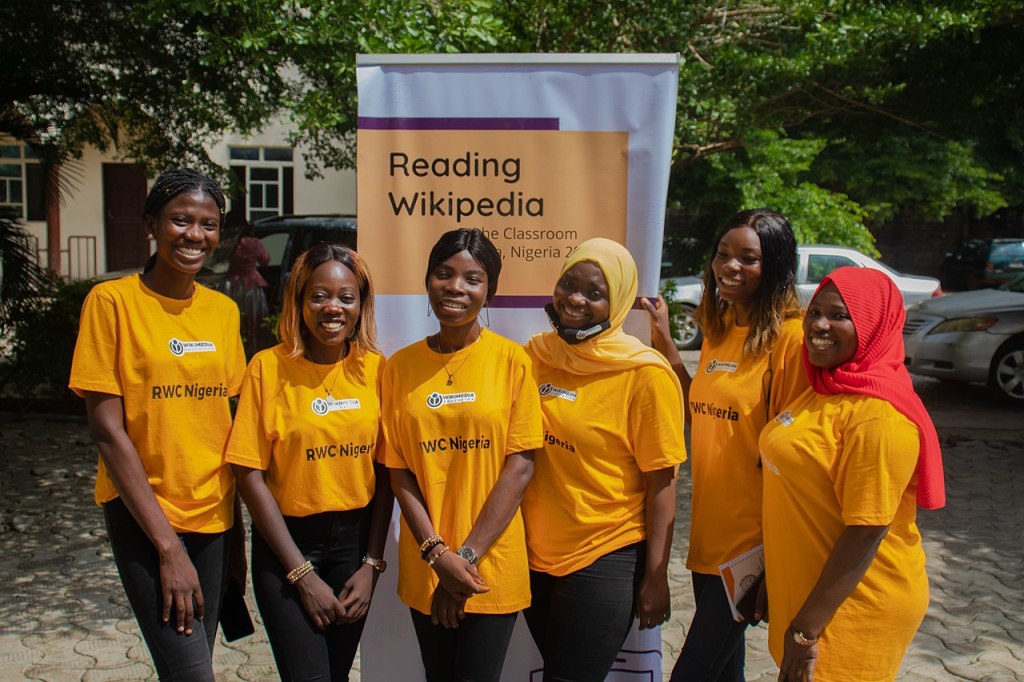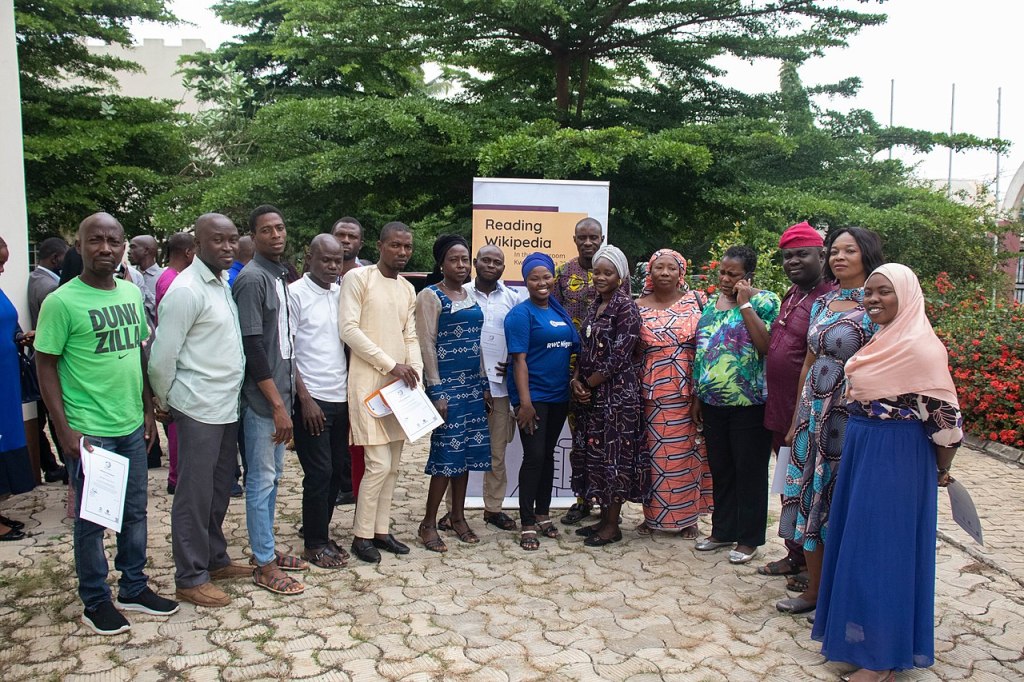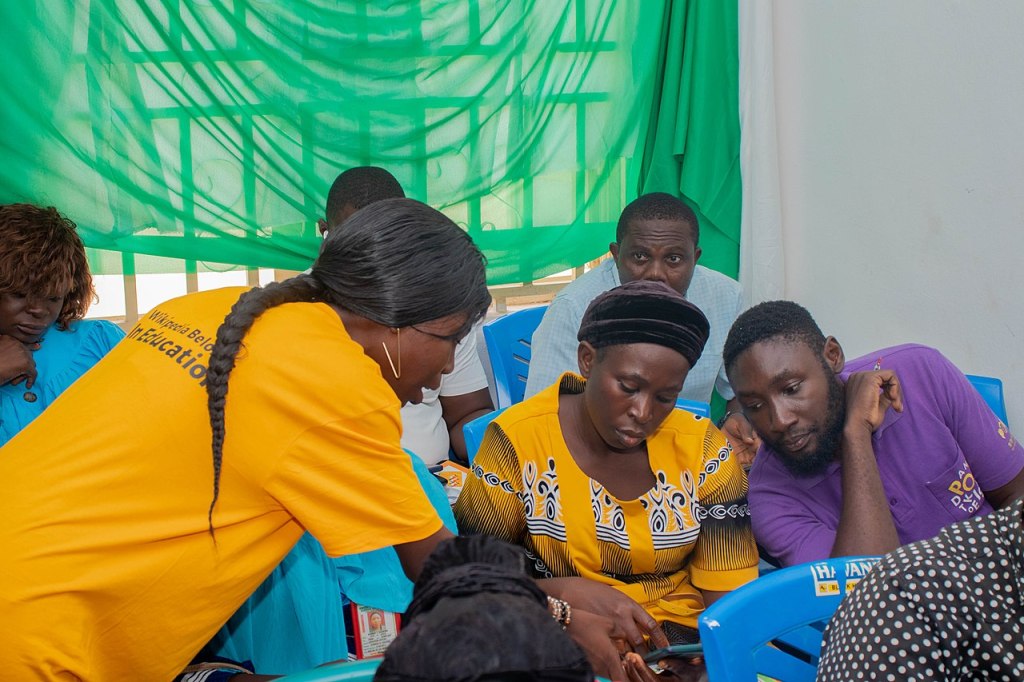The first implementation of the Reading Wikipedia in the Classroom program in Nigeria ran for a period of 3 months and was led by Bukola James, a Certified Trainer of the Reading Wikipedia in the Classroom program. Bukola was part of the first international cohort of Certified Trainers to receive the Wikimedia Foundation support of a grant and mentorship for the implementation. Her implementation was led in partnership with the Nigerian National Commission for UNESCO, the National Library of Nigeria (NLN), the Ministry of Education and Human Capital Development – Kwara, UNESCO Associated School Project Network (ASP-net) in Kwara, State Universal Basic Education Board (SUBEB), and Teaching Service Commission (TESCOM) in Kwara State.
Key partnerships for the program
The partnership with the Nigerian National Commission for UNESCO led to the approval for the implementation of the Reading Wikipedia in the Classroom program which adopted the UNESCO Media and Information Literacy framework with the recommendation from the National Library of Nigeria.
This approval from UNESCO provided legal backing for reaching out to participants and stakeholders in the education sector in Nigeria, specifically Kwara State for further approval for the commencement of the first implementation. This partnership also facilitated the approval and recommendation of this program in other parts of the country for newly certified trainers. As part of this partnership, the Nigerian National Commission for UNESCO recommended that the implementation consider working with 30 teachers from both public and private secondary schools in Kwara State under the UNESCO Associated School Project Network (ASP-net) during the implementation which was agreed upon.
The Ministry of Education and Human capital Development Kwara State provided the implementation team with a monitoring team and recommended 40 teachers to be part of the program. The partnership with the Kwara State government ensured functional measurement as a means to evaluate Teacher’s performance during the implementation. The partnership with State Universal Basic Education Board (SUBEB), and Teaching Service Commission (TESCOM) in Kwara State birthed the approval letter which served as evidence for participating Teachers.
Our program goals and impact
The program proposed creating awareness among 200 teachers but succeeded in creating awareness among 228 teachers on the effective usage of Wikipedia to enhance Media and Information Literacy skills and act as a learning tool in June 2022. We initially collected the perspectives and experiences of these teachers using a survey.
The program proposed engaging 70 teachers for the first pilot implementation. However, 75 teachers in Kwara were enrolled to be trained on how to understand, access, retrieve, create, and effectively integrate the lessons learned from this program into their classroom activities in June 2022. This was a result of the 228 applications received from all the 16 local government areas in the State.
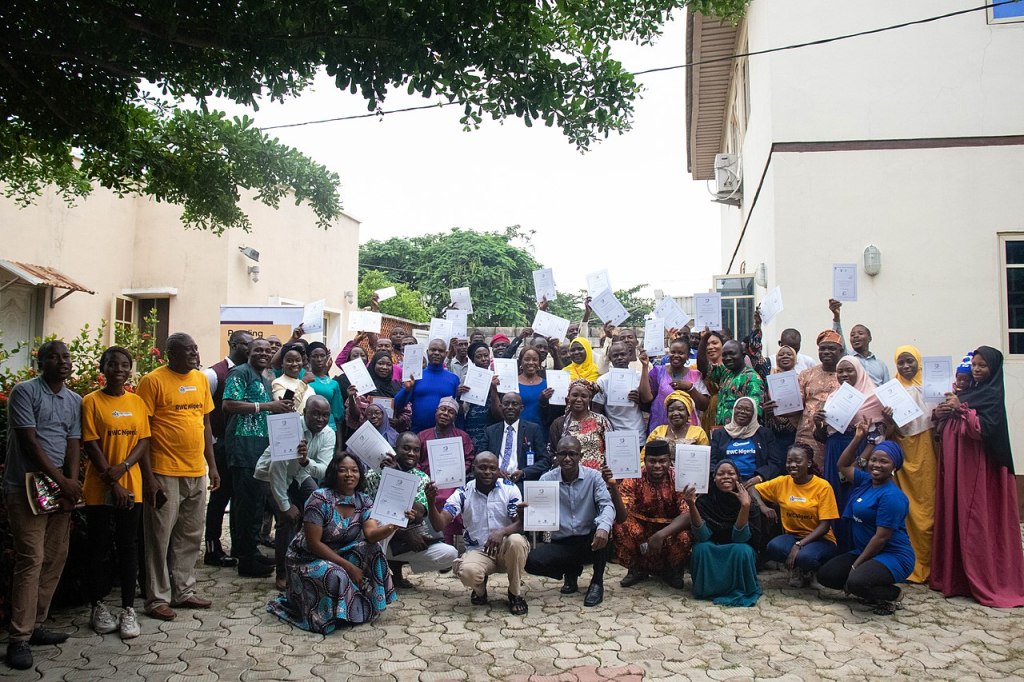
The program originally aimed to certify 35 teachers. At the end of the implementation in July 2022, 60 of the teachers who met the program requirement received certificates of completion. These teachers are ready to implement the new classroom strategies that foster Media and Information Literacy using Wikipedia as an Open Education Resources (OERs) across 60 Schools in Kwara State.
Steps taken to grow our community
The project timeline was divided into 3 specific activities;
- Planning which commenced in May 2022 with various activities such as adaptation and localization of teachers guide, documentation page, call for teachers and selection of participants that met the program requirement, conducting pre-survey/need assessment for teachers, and creating communication channels via Social Media Platforms, preparation of presentation slides among others to achieve program desired goals.
- Implementation: The program adopted a blended mode of implementation (Offline in-person training and online one-on-one support for teachers) with four (4) physical training held at the Mustapha Akanbi Library and Resource Centre, Ilorin for a period of 1 month in June. The teachers also contributed to Wikimedia projects which was tracked on the project outreach dashboard.
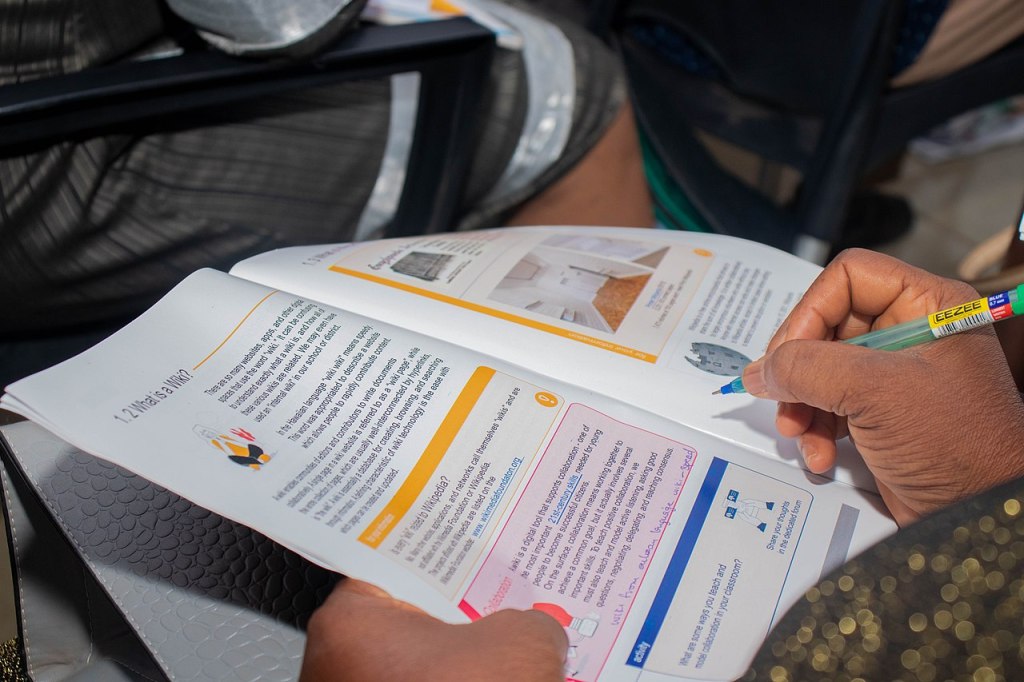
- The first training session introduced 63 Teachers to module 1 (Accessing Information) of the Teacher’s Guide.
- The second training session discussed module 2 (Evaluating Information) with 72 participants in attendance.
- The third training session which was the final training session dwelled on module 3 (Creating information) with 68 teachers in attendance.
- The fourth session which was the closing and certification ceremony had over 70 participants across all the 16-Local Government Areas of Kwara State with 60 certified teachers who met the program requirements, and special recognition /awards given to the top 5 editors who contributed immensely to Wikipedia and its sister projects.
- Evaluation: The goal of the evaluation is to establish what changed as a result of the Reading Wikipedia in the Classroom program in Kwara, Nigeria, and to gain useful insights about the process that will assist in improving future interventions and sustainability. This helps to better understand whether the program improved teachers’ understanding of Wikipedia as a useful learning tool to promote relevant media and information literacy skills. The team is currently consolidating the data gathered in this stage and we will be presenting more of our learnings soon.
Learnings and recommendations from the Nigeria team
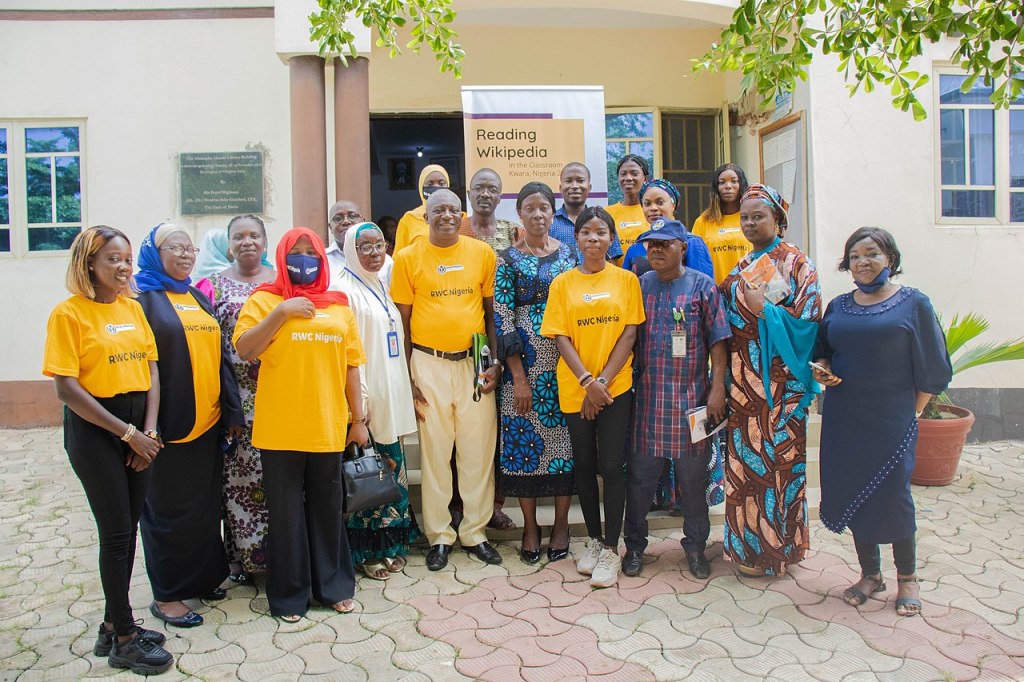
- Seek advice from experienced resource persons such as retirees from the education sector and get them involved in your implementation process: This is one of the best decisions that made RWC Kwara measure great impact. Working with experienced stakeholders as resource persons who acted as an advisory board for the project provided guidance and proper planning for the implementation.
- According to research, collaborative problem-solving produces better results as people are more likely to take calculated risks that lead to innovation. Working with a team of 6 dedicated volunteers made the implementation less stressful as there was a division of labour and grouping of teachers by the trainers so they can be attended to on time for increased job satisfaction, and to reduce workload.
Effective teamwork makes the project work!
- Ensure the training space is set a day before the training and all equipment such as projector, and sound systems are in place. Prepare training resources and share them with participants via mail or WhatsApp before each training session.
- Divide the teachers into different groups and assign a facilitator to each group using different communication channels, e.g., WhatsApp for instant feedback, Facebook, text messaging, or telephone calls.
- Ensure participants create Wikipedia accounts before the implementation to keep IP blocks to a minimum.
- Recommend at least 5 training sessions so teachers can get more hands-on experience during implementation.
- Encourage feedback and recognition of outstanding participants using incentives such as gift vouchers.
- Generate weekly reports of activities carried out by team members to keep track of implementation progress.
Challenges faced during implementation of the RWC Kwara, Nigeria
Despite the project’s success, the following challenges were faced during its implementation.
- Inadequate ICT Skills: Some of the teachers selected to represent their schools do not have adequate ICT skills and could only use their mobile phones for basic functions, which slowed their comprehension of some basic things on Wikipedia. E.g., changing their mobile phones to desktop mode, inability to distinguish between a search engine and a browser, and unfamiliarity with the Wikipedia user interface.
- IP address block: This was the most difficult challenge encountered during the third week of the program implementation, as it prevented most teachers from actively participating in the physical training session on creating information in module 3. Hence the need to devise other alternatives which made the session very difficult and stressful. The teachers became hesitant and almost changed their perception of Wikipedia as a friendly space for new editors causing a delay in their assignment submission, and postponement of the closing/certification ceremony.
- Absence of Teachers at the physical meeting: Some of the teachers who could not attend the third physical training found it extremely difficult to adapt and complete the lesson plan on their own, so we had to organise individual Zoom calls and provide one-on-one support for them to go over the lesson plan several times.
Our next steps
The Reading Wikipedia in the Classroom program Nigeria having exposed Teachers to the UNESCO Media and Information Literacy framework has also proven that Wikipedia truly belongs in education. Our team believes that Wikipedia has a lot of potential to promote new learning methodologies for students, enhance teaching pedagogies, facilitate high-quality learning and teaching efficiency, prioritize the use of Open Education Resources, bridge the media and Information literacy gap in Nigeria, and strengthens the critical thinking abilities of students.
To have a functional measurement of the impact of the Reading Wikipedia in the Classroom program Kwara on Teachers, we have adopted a follow-up initiative to the Reading Wikipedia in the Classroom program but this time for students in secondary schools in Kwara State. The goal of this initiative is to assist the teachers who completed the program in implementing the lessons learned and using the knowledge gained to support their students. This way, our team will be able to evaluate the impact of this training on their classroom activities. More about this project will be discussed in our next publication!
About the Project Implementation Team
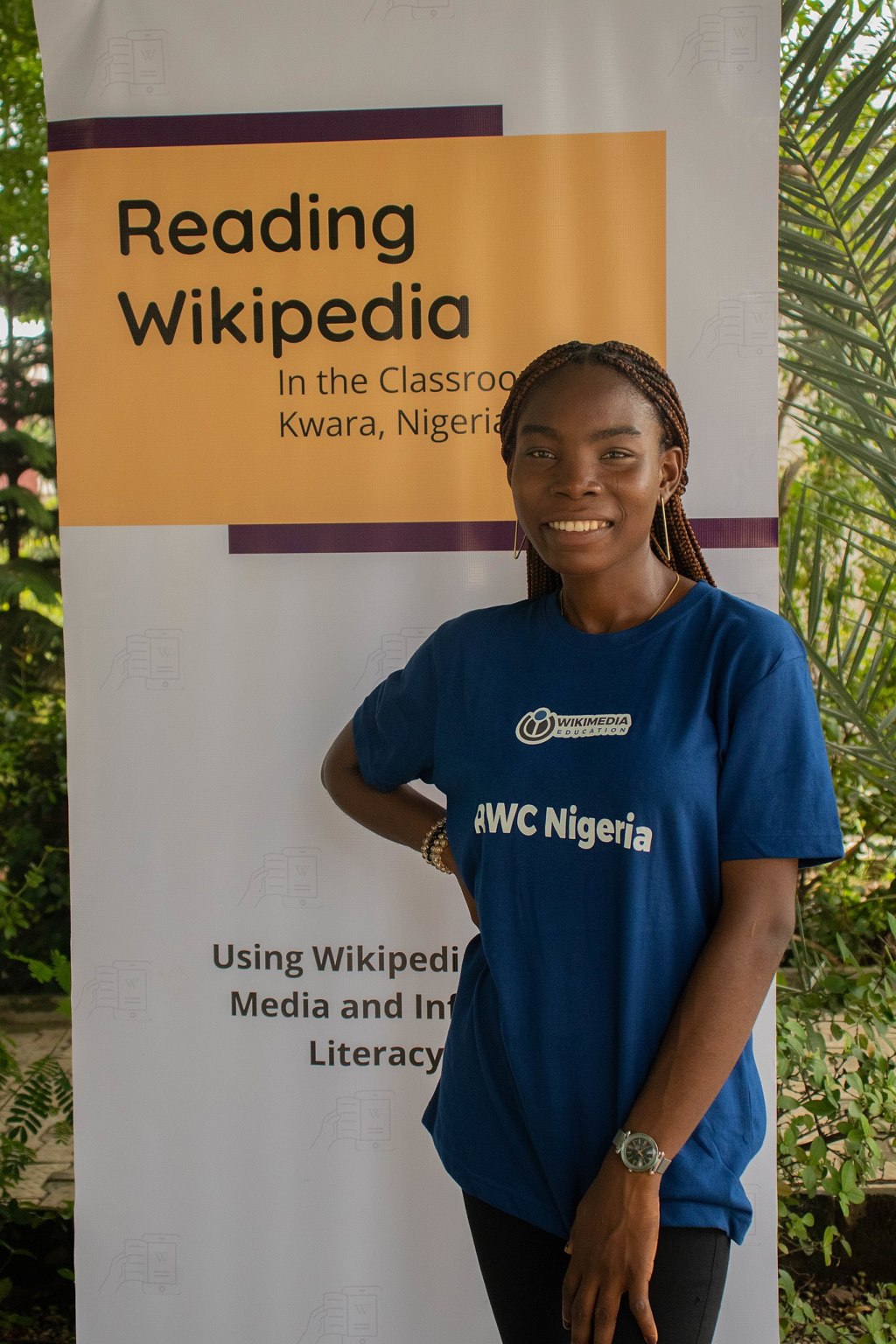
Bukola James (Project Lead): She is a graduate of Library and Information Science from Kwara State University Malete, a former virtual intern for the IFLA-BSLISE working group, and a member of the Creative common GLAM Resource group. She is the first certified trainer of the Reading Wikipedia in the Classroom program in Nigeria. Outside of the open community, she is an advocate of SDGs 4, 8 & 12.
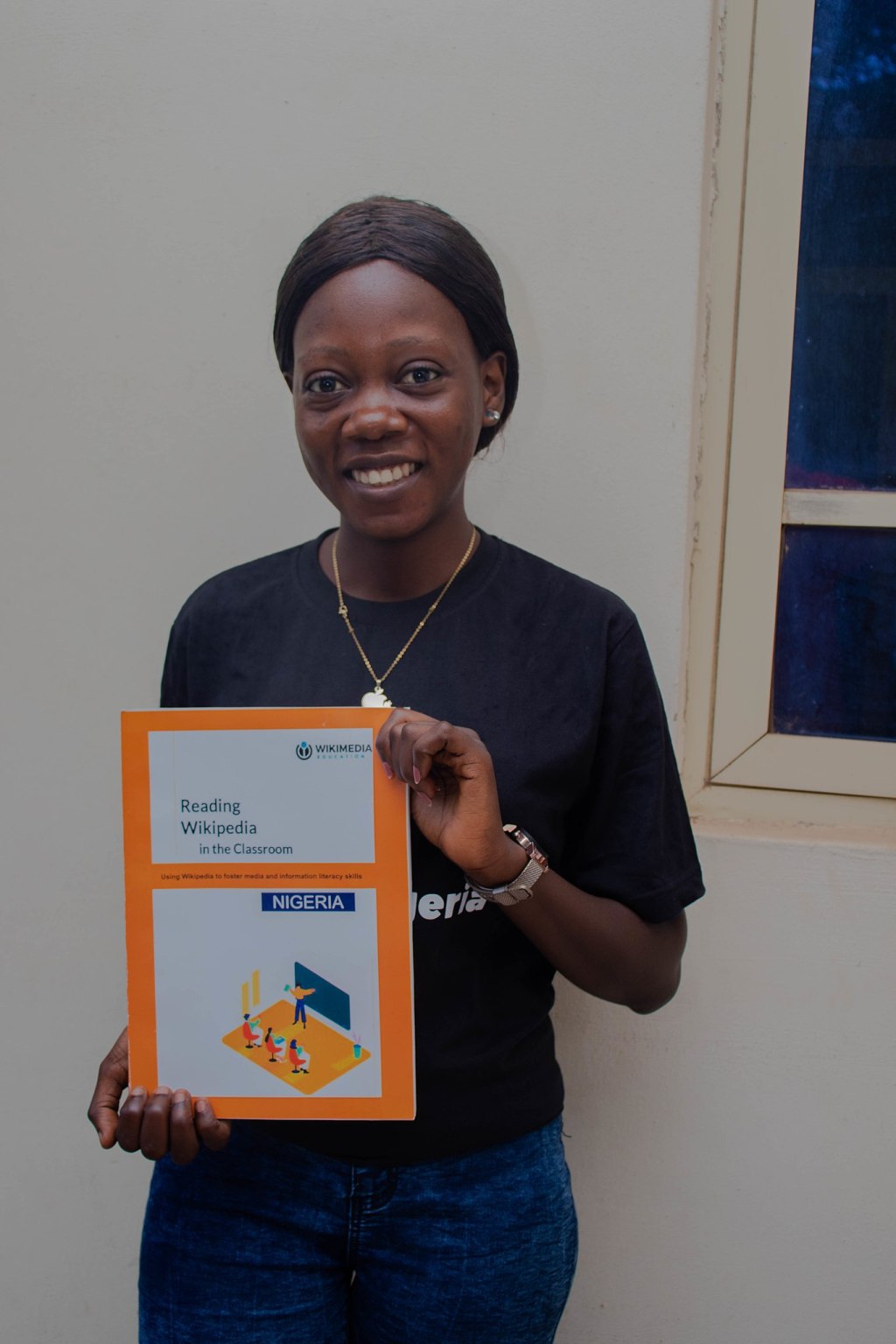
Linason Blessing Chematoan (Co-Trainers): She is a student of Kwara State University from the department of Library and Information Science, a Wikimedian, and a volunteer for the Women’s Technology Empowerment Centre. She is passionate about making free knowledge accessible and dispensable to people in her community and globally.

Rhoda James (Co-Trainers): She is a student at the University of Ilorin, studying Business Education. She is a Wikimedian and Graphic Designer for the Wikimedia Nigeria User Group and a co-trainer at the First Reading Wikipedia in the Classroom, Kwara Nigeria. She has also organised, facilitated, and participated in various Wikimedia projects.
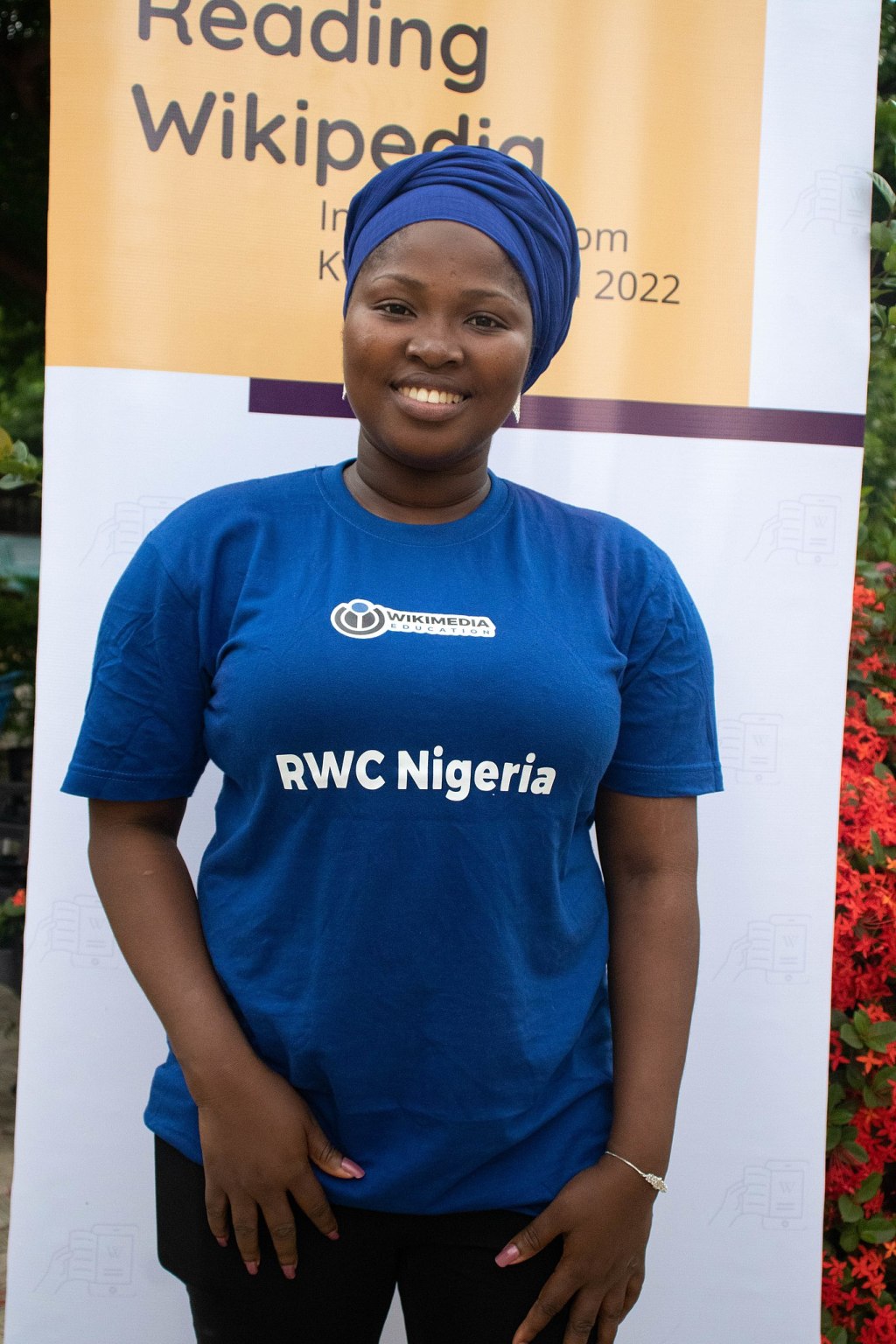
Ajeigbe, Rukayat Bolaji (Volunteer): Wikimedian, Content creator, and project lead for Female Youth Initiative. She’s passionate about research and self-development.
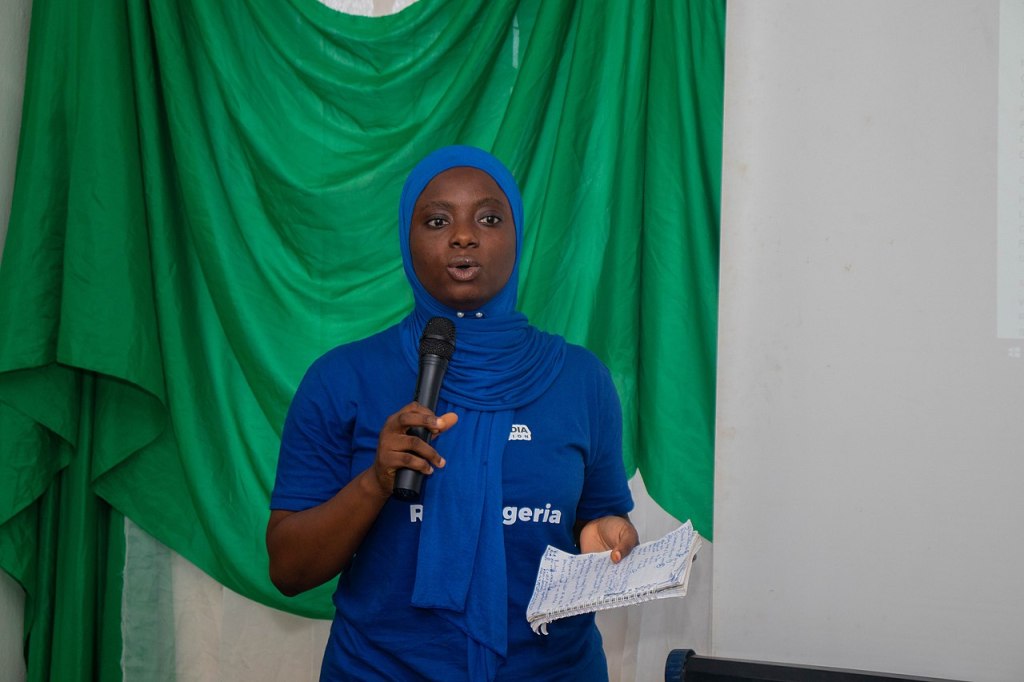
Barakat Adegboye (Volunteer): She is a Business Education student at the University of Ilorin. A Wikimedian, and facilitator of the recently concluded Reading Wikipedia in the Classroom Program in Kwara State. She is also a self-taught phone photographer and artist who loves to bring out the beauty in anything ordinary.
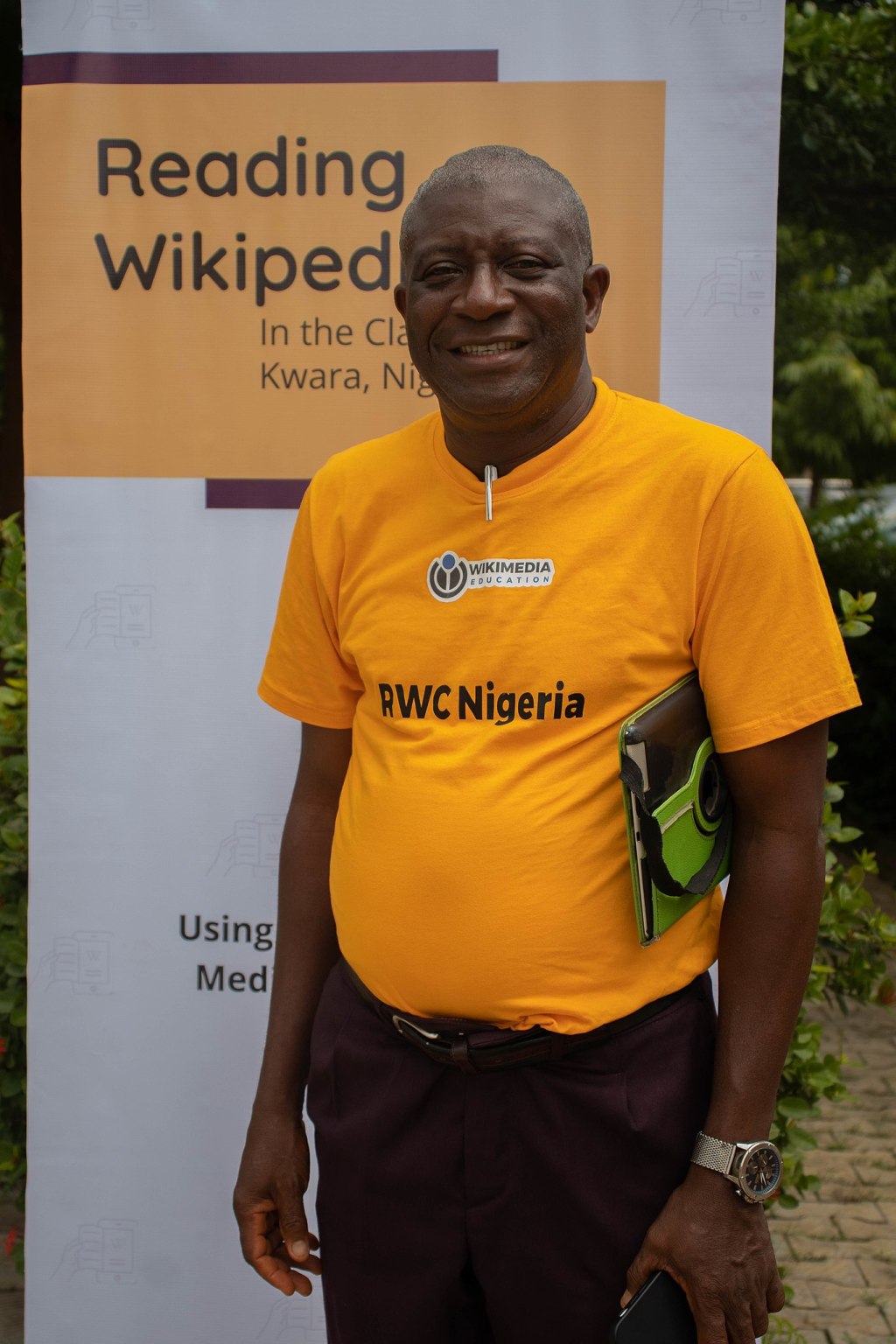
Pst. J. K. Alabi, (Resource Person): A Retired Civil Servant, Guidance-Counsellor, and Educationist. He is the CEO of Toptal Global Educational Consult, Ilorin.
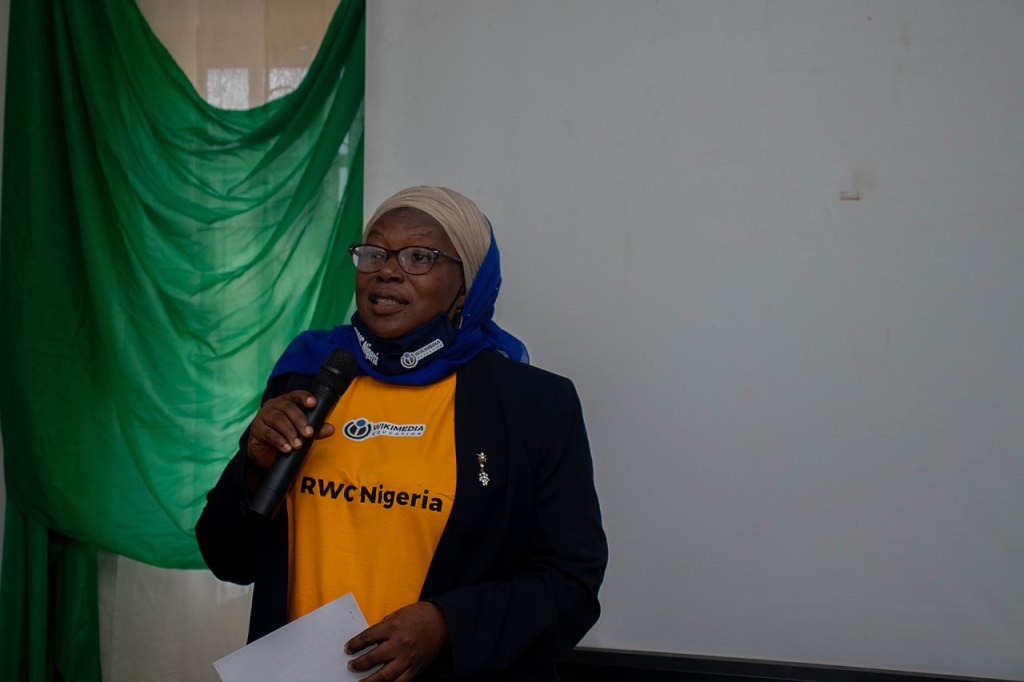
Mrs. Olani Olabimpe, (Resource Person): Head of Branch National Library of Nigeria Kwara State.
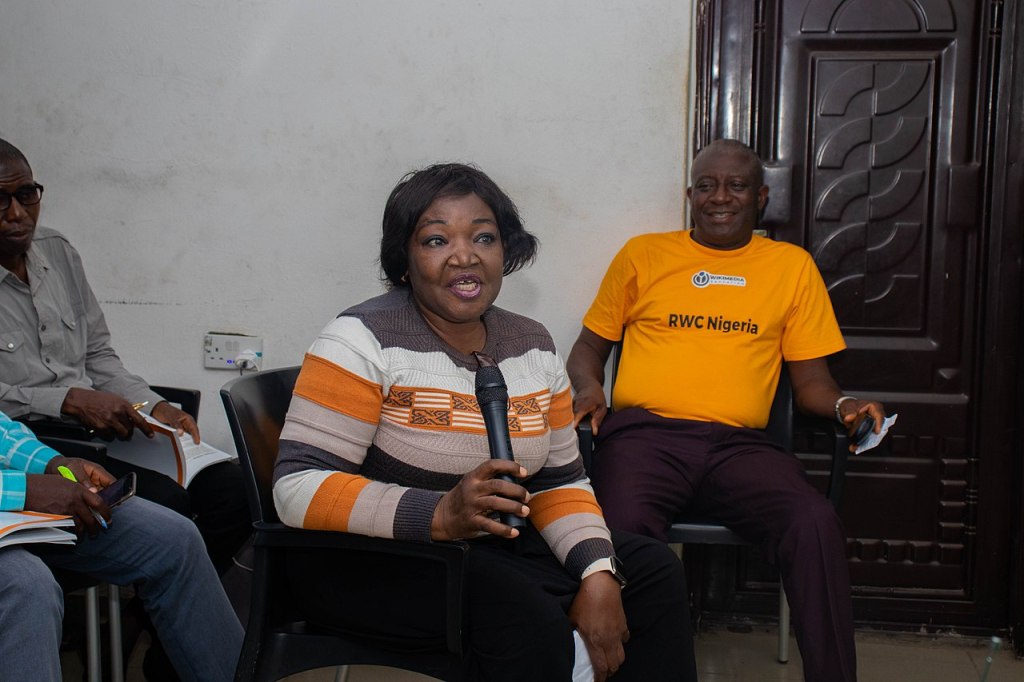
Mrs. Juliet Emielu (Resource Person): Author and School Principal, Government Secondary School Adeta Ilorin.
Reading Wikipedia in the classroom program, Kwara Nigeria Social media handles

Can you help us translate this article?
In order for this article to reach as many people as possible we would like your help. Can you translate this article to get the message out?
Start translation
